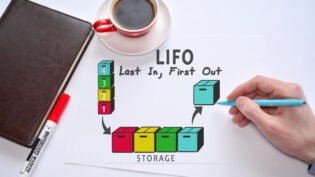
Maintaining business records is a must for any small business. Keeping good records ensures that your business runs smoothly and efficiently, and that you’re prepared when tax time rolls around. Many businesses have experienced crippling issues that compromise business success when they ignore basic recordkeeping practices. Here’s a primer on small business recordkeeping and why you need to pay attention to this essential business practice.
What Is Business Recordkeeping?
Business recordkeeping comprises all the documents you routinely use in doing business, everything from receipts to invoices, from contracts to employee records. It also includes your bookkeeping documents—the spreadsheets and logs you maintain that track your income and expenses—as well as other vital statistics of your business.
Records were traditionally stored in folders in filing cabinets. But it’s more common nowadays to maintain records in online documents, spreadsheets, and databases. Specialized recordkeeping software can also help business owners to store and manage their records, creating efficiencies that save you time and money.
Read more on offsite record storage services
Why Do I Have to Keep Records?
There are a number of important reasons to keep records:
Legal Accountability
You need to keep business records to make sure you’re in compliance with all laws. Legal documents like contracts, licenses and permits, insurance policies, leases, and payroll/personnel forms must be retained and accessible for reference purposes. If you’re an LLC or partnership, or you have incorporated your business, you’re required to maintain up-to-date registrations or by-laws.
Tax Prep
In order to prepare your tax forms for filing with the IRS or with state and local governments, you need to refer to records of income and expenses you maintain on an ongoing basis. Since deducting business expenses can lower your tax bill, you should keep clear and organized records of any and all expenses.
Performance Tracking
Records that track your income, expenses, and investments on a regular weekly, monthly, quarterly, or yearly basis are crucial for gauging the performance of your business. A full understanding of your cash flow situation relies on such records.
Strategic Planning
Successful business owners know the value of planning for the future. Comprehensive recordkeeping gives you access to data that allows you to plot a strategic course for your business, giving you a leg up on your competition.
Saving and Logging Receipts
Receipts are how you prove to taxing authorities that you incurred a tax-deductible expense. For most expenses you claim as deductions on your taxes, you need to have a receipt or invoice on file. These can be either paper or electronic, especially since it’s becoming more common for businesses to email you receipts and invoices. Consider getting in the habit of logging receipts on a regular basis and classifying each into the kind of expense (office, travel, customer meals, advertising, etc.) it represents.
In case you’re ever audited, it’s good to have access to original receipts, even if you scan copies of them to an online system. It’s also helpful to have credit card statements and cancelled checks as backup. If you claim a home office, you may also need statements or bills for your utilities, insurance, real estate taxes, home security system, and other allowable deductions.
Dealing With Travel Expenses and Client Meals
Some transactions, particularly with respect to travel expenses and customer meals, require you to keep detailed logs. For travel expenses, include the dates, locations, and business purpose of each trip. Make sure you have any receipts, like hotel bills, to go along with your log.
Same with vehicle expenses. You could claim actual vehicle expenses for business use of your car, but that takes a lot of extra recordkeeping. It’s more likely that you claim business mileage, where you simply record your mileage and deduct the standard business mileage rate from your taxes. In addition to recording the number of miles you traveled, you should also log where you went and the business purpose of the trip.
The Tax Cuts and Jobs Act of 2017 eliminated deductions for expenses you incur in entertaining clients, such as tickets to sporting events, outdoor activities, or other amusements. However, you can still deduct 50% of meals when meeting a client to talk about business. To claim client meals on your taxes, you need to keep a log of each meal, detailing the date, time, place, name of client, and the business you discussed.
How Long Should I Keep Records?
The IRS recommends the following guidelines for keeping records:
- Keep all records relating to your return for a minimum of 3 years
- If you filed a claim for credit or refund after you file a return, you should keep records for 3 years from the date you filed your original return or 2 years from the date you paid the tax, whichever is later
- You should keep your records for 7 years if you filed a claim for a loss from worthless securities or bad debt deduction
- You should keep employment tax records for at least 4 years after the date that the tax becomes due or is paid, whichever is later
- Taxpayers who file incomplete or fraudulent returns, or who didn’t file at all, should retain records indefinitely
The IRS notes that audits of taxpayer returns are usually done within 3 years. However, they also retain the right to go back as far as 6 years or more if they identify a substantial error. If you have access to enough storage space, it’s probably best to retain your records for up to 7 years, just to be safe.
Keeping the Books
At its most basic, bookkeeping is the process of recording your credits (income) and debits (expenditures). A bookkeeping ledger could be as simple as a spreadsheet, if you don’t have a lot of entries. For a larger business, you should consider an accounting software program like QuickBooks. Cloud-based accounting solutions let you access your books from remote locations anytime you want.
Staying on top of your books is just good business. Don’t wait until the end of the month, or longer, to log your transactions. Try to do so on at least a weekly basis. If you can’t seem to keep on top of your bookkeeping, consider hiring an experienced bookkeeper. Retaining bookkeeping help may give you the time you need to do what you want to be doing—serving your customers.














